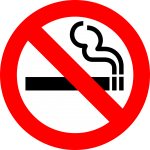May is National Stroke Awareness Month. Reading Hospital Stroke Center recently launched a new program, “How Do You Eat An Elephant?”, funded by the Reading Hospital Foundation. The How Do You Eat An Elephant? campaign, provides support to patients on their journey to recovery following a stroke. During treatment, patients are given a small stuffed elephant and a printed copy of the story of Brian Hoffa – a stroke patient whose strength and resilience taught him to take his care journey “one bite at a time.”
On the night before Brian was released following his stroke, his wife, Loryn Hoffa, brought him a stuffed elephant that he later named “DJ.” When nurses and visitors came into Brian’s room, he would ask them: “How do you eat in elephant?” The answer was always “one bite at a time,” which became Brian’s motto. Brian Hoffa took his path to recovery one step – or one bite – at a time.
“We are so grateful to fund another program that provides support to our patients,” said Katherine Thornton, President, Reading Hospital Foundation. “I would like to thank our donors for their continued support, which allows us to fund projects like How Do You Eat An Elephant? Through projects like these, we can spread a little bit of joy to stroke patients in our state-of-the-art rehabilitation program.”
Tower Health has long been recognized as a leader in stroke care, with Reading Hospital, Pottstown Hospital, and Phoenixville Hospital each designated as Primary Stroke Centers (PSC). These centers provide our community with rapid evaluation and treatment of a stroke and access to a CARF-accredited stroke rehabilitation program.
Reading Hospital has been named one of America’s Best 100 Hospitals for Stroke Care in 2023, earning the Stroke Care Excellence Award for the 17th year in a row.
Richard L. Lukose, DO, Chair, Neurology at Reading Hospital, said, “A stroke is a very serious medical emergency that requires immediate care. We are proud to offer our community with around-the-clock access to the highest level of quality stroke care.”
Every 3.5 minutes, someone dies of stroke. A stroke, or transient ischemic attack, occurs when blood flow to the brain is blocked. This prevents the brain from getting oxygen and nutrients and can destroy brain cells within minutes. A stroke is a medical emergency that requires immediate care. Use BE FAST to recognize the warning signs of a stroke:
Balance – Sudden loss of balance.
Eyes – Vision loss in one or both eyes.
Face – Weakness or dropping on one side.
Arms – Weakness in one arm.
Speech – Slurred speech or sudden confusion.
Time – Call 9-1-1 now!




